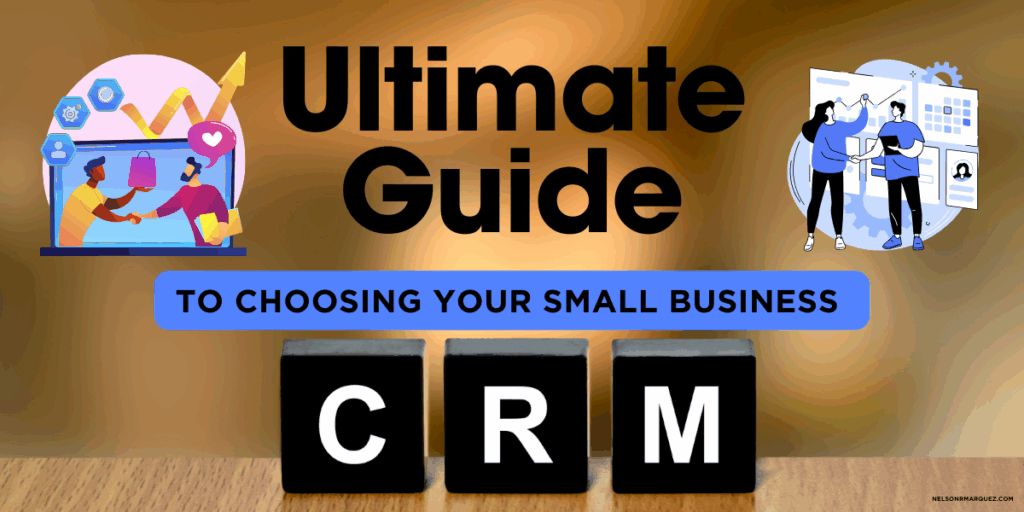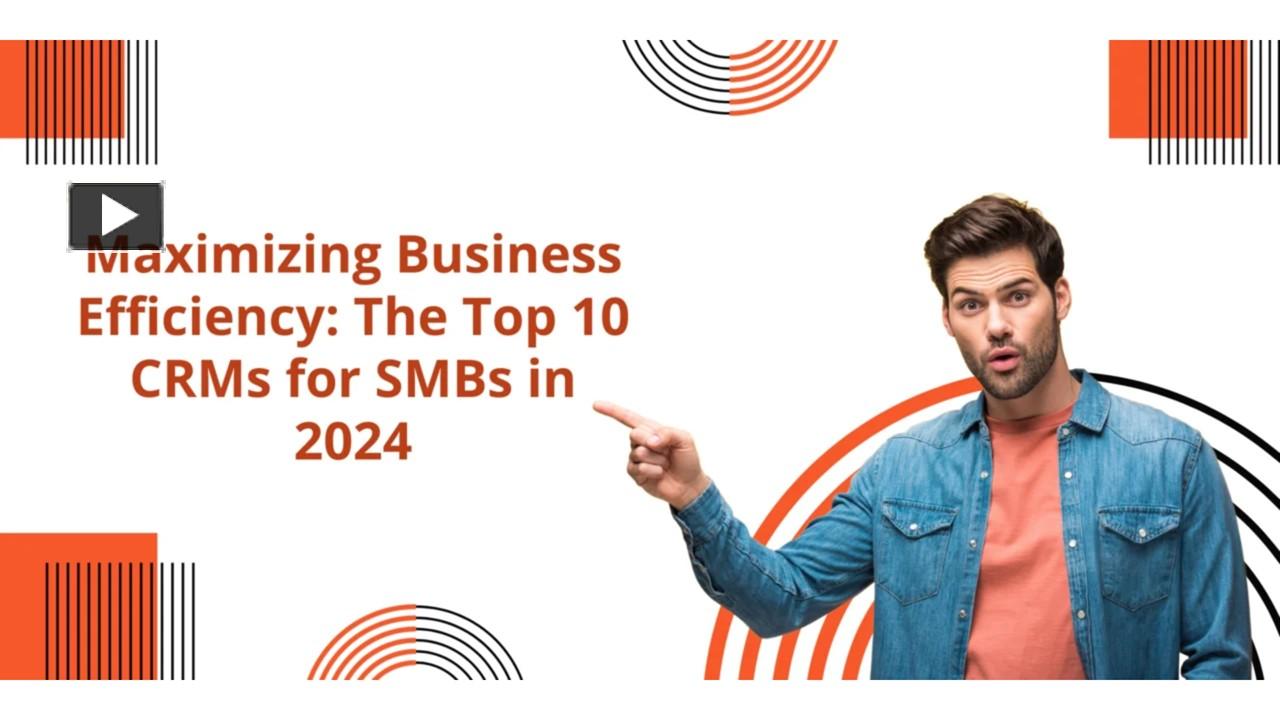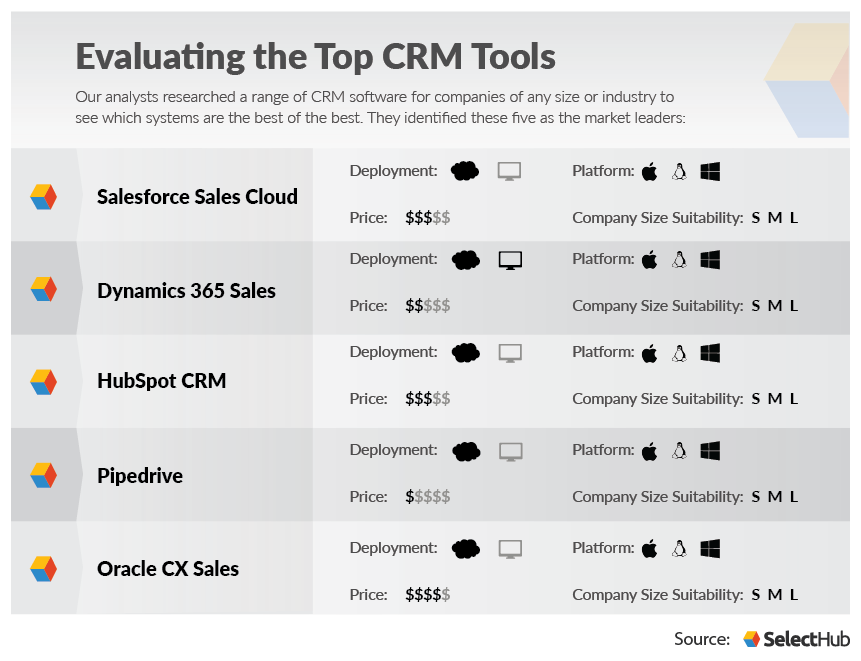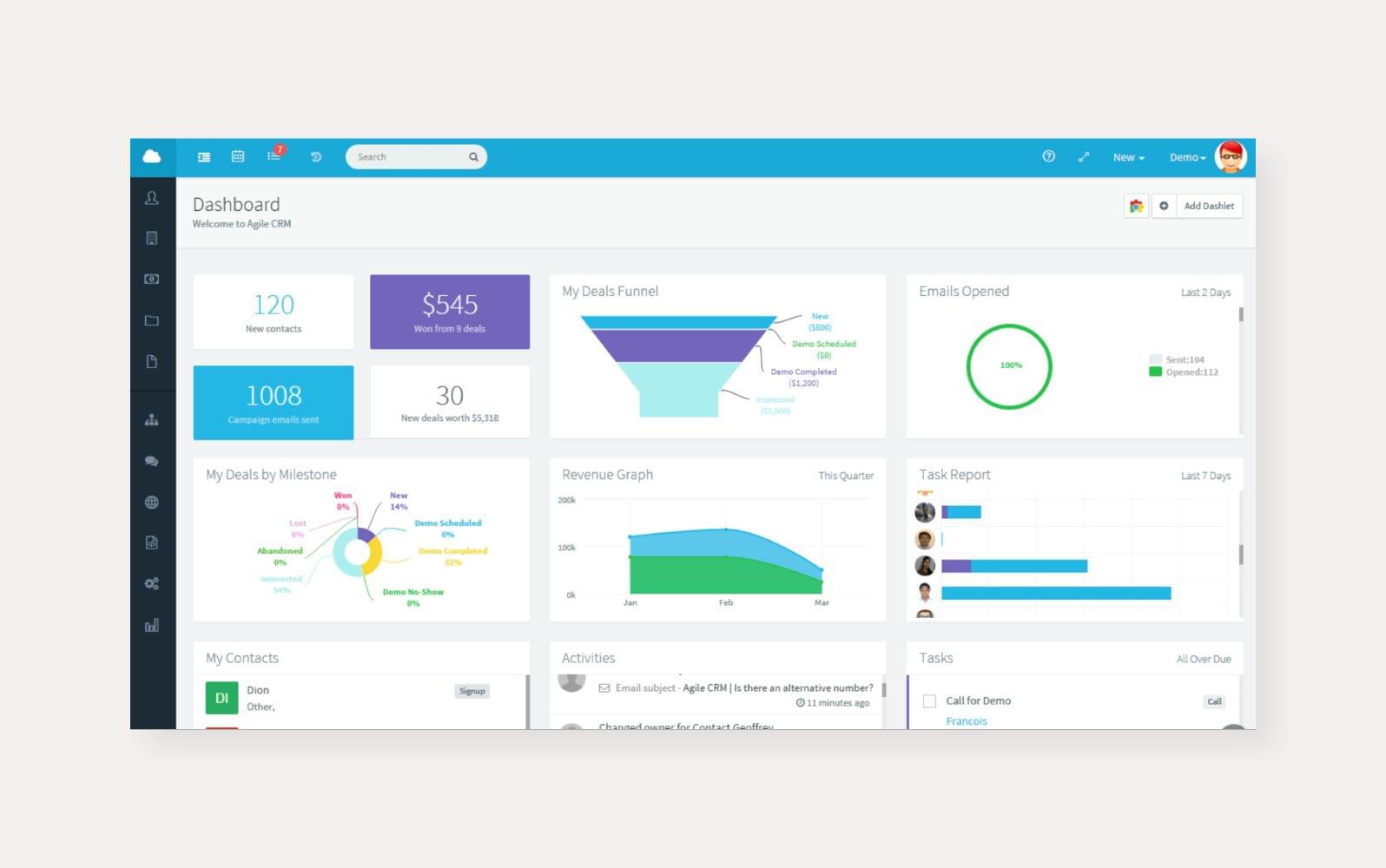
So, you’re running a small business. Congrats! It’s a wild ride, isn’t it? One minute you’re brainstorming ideas, the next you’re juggling invoices, customer inquiries, and a thousand other things. And let’s be honest, keeping track of everything can feel like herding cats. That’s where a Customer Relationship Management (CRM) system comes in. But with so many options out there, choosing the right one for your small business can feel like another overwhelming task. Don’t worry, though. This guide is here to help you navigate the world of small business CRM selection.
What is a CRM and Why Does Your Small Business Need One?
Let’s start with the basics. CRM stands for Customer Relationship Management. At its core, a CRM is a system that helps you manage your interactions with current and potential customers. Think of it as a central hub for all your customer-related information. It’s a digital filing cabinet, a communication center, and a sales and marketing powerhouse all rolled into one.
Why is this important for your small business? Well, consider these benefits:
- Improved Customer Relationships: A CRM provides a 360-degree view of your customers, allowing you to personalize interactions, anticipate their needs, and build stronger relationships. Happy customers are loyal customers, and loyal customers are the lifeblood of any small business.
- Increased Sales: CRM systems help you track leads, manage your sales pipeline, and identify opportunities to close deals. They can automate tasks, remind you of follow-ups, and provide valuable insights into your sales performance.
- Enhanced Efficiency: Imagine eliminating manual data entry, streamlining communication, and automating repetitive tasks. A CRM can do all of that, freeing up your time to focus on growing your business.
- Better Data Insights: CRM software collects and analyzes data about your customers and your business operations. This data can be used to make informed decisions about marketing, sales, and customer service.
- Improved Collaboration: If you have a team, a CRM ensures everyone is on the same page. All customer interactions, notes, and data are accessible to authorized team members, promoting seamless collaboration.
In essence, a CRM is an investment in your business’s future. It’s a tool that can help you attract more customers, retain existing ones, and ultimately, boost your bottom line.
Key Features to Look for in a Small Business CRM
Now that you understand the ‘why,’ let’s delve into the ‘what.’ What features should you look for in a CRM system specifically designed for a small business? Here’s a breakdown of essential features:
Contact Management
This is the foundation of any CRM. You need a system that allows you to store and organize customer contact information, including names, addresses, phone numbers, email addresses, and any other relevant details. Look for features like:
- Data Import and Export: The ability to easily import your existing contact data from spreadsheets or other sources and export data when needed.
- Contact Segmentation: The ability to group contacts based on various criteria (e.g., location, purchase history, lead source) for targeted marketing and communication.
- Custom Fields: The ability to add custom fields to capture specific information relevant to your business.
Sales Automation
Sales automation features streamline your sales process, saving you time and effort. Key features include:
- Lead Management: Track leads from initial contact through the sales pipeline.
- Deal Tracking: Monitor the progress of deals and manage your sales pipeline.
- Task Automation: Automate repetitive tasks like sending follow-up emails or creating tasks for sales reps.
- Sales Reporting: Generate reports on sales performance, identify trends, and track key metrics.
Marketing Automation
Marketing automation features help you nurture leads, engage customers, and improve your marketing ROI. Look for features like:
- Email Marketing: Create and send targeted email campaigns.
- Lead Nurturing: Automate email sequences to nurture leads through the sales funnel.
- Social Media Integration: Connect your CRM to your social media accounts to manage your social media presence and track social media interactions.
Customer Service and Support
Excellent customer service is crucial for small businesses. CRM features in this area include:
- Ticket Management: Track and manage customer support requests.
- Knowledge Base: Create a knowledge base of FAQs and other helpful resources for your customers.
- Live Chat Integration: Integrate live chat functionality to provide instant support.
Reporting and Analytics
Data is your friend. Reporting and analytics features provide insights into your business performance. Look for:
- Customizable Dashboards: Create dashboards to track key metrics.
- Pre-built Reports: Access pre-built reports on sales, marketing, and customer service performance.
- Data Visualization: Visualize your data with charts and graphs.
Integration Capabilities
Your CRM should integrate with other tools you use, such as:
- Email Marketing Platforms: Integrate with platforms like Mailchimp or Constant Contact.
- Accounting Software: Integrate with software like QuickBooks or Xero.
- E-commerce Platforms: Integrate with platforms like Shopify or WooCommerce.
Mobile Accessibility
In today’s mobile world, it’s essential to have a CRM that is accessible on the go. Look for a CRM with a mobile app or a responsive web design that works well on mobile devices.
Choosing the Right CRM: A Step-by-Step Guide
Okay, you know what a CRM is and what features to look for. Now, how do you actually choose the right one? Here’s a step-by-step guide to help you make the right decision:
1. Define Your Needs and Goals
Before you start looking at CRM systems, take some time to define your needs and goals. What are you hoping to achieve with a CRM? What problems are you trying to solve? What are your key business processes? Consider these questions:
- What are your current pain points? (e.g., losing track of leads, difficulty managing customer inquiries, inefficient sales processes)
- What are your sales and marketing goals? (e.g., increase sales, improve customer retention, generate more leads)
- What are your customer service goals? (e.g., improve response times, increase customer satisfaction)
- What are your budget and resources? (e.g., how much can you afford to spend, how many employees will use the system)
Answering these questions will help you narrow down your options and choose a CRM that aligns with your specific needs.
2. Research and Shortlist CRM Providers
Once you know your needs, start researching CRM providers. There are countless options available, so it’s essential to narrow down your choices. Here are some popular CRM providers often well-suited for small businesses:
- HubSpot CRM: A free CRM with powerful features for sales and marketing.
- Zoho CRM: A comprehensive CRM with a wide range of features and affordable pricing.
- Freshsales: A sales-focused CRM with features like built-in phone and email.
- Pipedrive: A sales-focused CRM that emphasizes visual pipeline management.
- Salesforce Essentials: A simplified version of Salesforce designed for small businesses.
- Less Annoying CRM: Focuses on simplicity and ease of use.
- Insightly: A CRM with a focus on project management.
Read reviews, compare features, and consider the pricing of each provider. Make a shortlist of 3-5 providers that seem like a good fit.
3. Evaluate Your Shortlisted Options
Now it’s time to dig deeper into your shortlisted options. Here’s what to consider:
- Features: Does the CRM offer all the features you need? Does it have the functionality to support your business processes?
- Ease of Use: Is the CRM user-friendly and easy to navigate? Does it have a clean and intuitive interface? Consider ease of use for all team members who will be using it.
- Pricing: Does the pricing fit your budget? Consider the different pricing plans and what features are included in each plan. Are there any hidden costs?
- Integrations: Does the CRM integrate with the other tools you use?
- Customer Support: What kind of customer support does the provider offer? Is support available via phone, email, or live chat?
- Scalability: Will the CRM grow with your business? Can it handle an increasing number of contacts and users?
- Security: How secure is the CRM? Does it offer data encryption and other security features to protect your customer data?
4. Request Demos and Free Trials
Most CRM providers offer demos and free trials. Take advantage of these opportunities to get a hands-on feel for the software. Request a demo from each of your shortlisted providers and ask specific questions about your needs. Sign up for free trials to test the software and see how it works in practice. Have your team test the software. See how they like it, and get their feedback.
5. Consider Implementation and Training
Implementing a CRM can be a complex process. Consider the following:
- Implementation Support: Does the provider offer implementation support? Do they provide onboarding assistance?
- Data Migration: How easy is it to migrate your existing data into the CRM? Does the provider offer data migration services?
- Training: Does the provider offer training resources? Is training included in the price?
6. Make Your Decision and Implement
After evaluating your options, it’s time to make a decision. Choose the CRM that best meets your needs and fits your budget. Once you’ve made your decision, it’s time to implement the CRM. Follow the provider’s instructions and leverage their support resources to ensure a smooth implementation. Be patient, it can take time, but the rewards are well worth the effort.
Common Mistakes to Avoid When Choosing a CRM
Choosing a CRM is a big decision, and it’s easy to make mistakes. Here are some common pitfalls to avoid:
- Choosing a CRM that’s too complex: Don’t choose a CRM with more features than you need. A complex CRM can be difficult to learn and use, and you may not utilize all of its features.
- Choosing a CRM based solely on price: While cost is a factor, don’t let it be the only deciding factor. Consider the value you’ll receive from the CRM and its ability to meet your needs.
- Failing to define your needs: Without a clear understanding of your needs, you’re likely to choose a CRM that doesn’t meet your requirements.
- Not involving your team: Get your team involved in the selection process. They’re the ones who will be using the CRM, so their input is valuable.
- Not providing adequate training: Training is essential for ensuring your team knows how to use the CRM effectively.
- Not migrating your data properly: A poorly executed data migration can lead to data loss or errors.
- Not using the CRM consistently: A CRM is only effective if it’s used consistently. Make sure your team understands the importance of using the CRM and encourage them to do so.
The Future of CRM for Small Businesses
The world of CRM is constantly evolving. Here are some trends to watch out for:
- Artificial Intelligence (AI): AI is being used to automate tasks, personalize interactions, and provide data-driven insights.
- Mobile CRM: Mobile CRM is becoming increasingly important as businesses become more mobile.
- Integration with other tools: CRM systems are integrating with more and more tools, such as social media platforms, e-commerce platforms, and marketing automation platforms.
- Focus on customer experience: CRM systems are increasingly focused on improving the customer experience.
By staying informed about these trends, you can ensure that your CRM system continues to meet your evolving needs.
Final Thoughts: Making the Right Choice
Choosing the right CRM for your small business is a crucial step towards growth and success. By carefully considering your needs, researching your options, and following the steps outlined in this guide, you can make an informed decision and select a CRM that helps you build stronger customer relationships, increase sales, and streamline your operations.
Remember, the best CRM is the one that fits your specific needs and helps you achieve your business goals. Take your time, do your research, and don’t be afraid to ask for help. With the right CRM in place, you’ll be well on your way to taking your small business to the next level.
Good luck, and happy CRM-ing!


